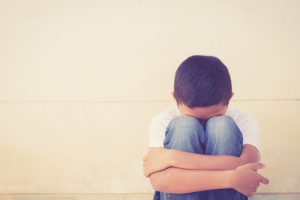 Children’s mental health is a serious issue. But it’s not always easy to tell when our kids are in turmoil.
Children’s mental health is a serious issue. But it’s not always easy to tell when our kids are in turmoil.
The prevalence of children and adolescents (aged 3-17) in crisis today is higher than you may think. According to the CDC, in the United States alone, about 6 million kids have ADHD, 4.4 million have anxiety, and about 2 million have depression.*
Therapeutic intervention is often necessary for these problems. Hence, it’s ever more important for parents to be informed and know what behavioral signs to look for that may indicate there are concerns.
Recognizing the Issue
Typically, children aren’t able to help themselves as effectively as adults can. Not only is it harder for kids to categorize their emotions, but they aren’t aware of the resources available to help them.
As parents, it’s essential that we closely watch our children’s behaviors. Even if it seems like they may just be going through a phase, it’s important that you keep an eye on any unusual behavioral trends or sudden deviations from what is the norm for your child.
It’s also important that we reach out to our children and initiate conversations. Adolescents, especially older ones, may dislike discussing their feelings, but there are ways to make it easier for them. To ensure that your child isn’t dwelling on negative thoughts, it’s crucial that you provide them with reliable support when you have become aware of an issue. That includes staying approachable and calm when discussing problems they may be facing or emotions they can’t make sense of.
The worst thing we can do is ignore the fact that millions of children have mental health difficulties. While it’s certainly hard to come to accept that your child may be one of these children, dismissing the possibility is harmful. Instead, by staying aware and recognizing any issues early on, you can get your child the help they need.
Consider, for example, how to identify two of the most common mental health problems for young ones—depression and anxiety.
Signs That Your Child May Have Depression
Because children are still developing (even older ones), we can’t always tell if they’re simply going through a phase or if help is needed. But if you suspect your child may be suffering from depression, it’s important that you take action.
 If a child is depressed, there will likely be certain symptoms and behaviors, such as:
If a child is depressed, there will likely be certain symptoms and behaviors, such as:
- Excessive tiredness/lack of energy
- Irritability
- Removed personality – no longer engaged in social situations
- More crying than usual
- Loss of enjoyment in activities and hobbies
- Difficulties concentrating
Depression can be very hard for children to deal with, especially since kids are still formulating their personalities, likes, and interests. If you are noticing any of the above symptoms, it’s important to seek help for your child.
Signs That Your Child May Have Anxiety
Anxiety is a little more common in children than depression, though both may exist concurrently. Of course, we all experience anxiety from time to time—it’s normal. But long-term anxiety is hard to cope with, especially for children who may not have the coping skills to manage it.
 Symptoms of anxiety in children include such things as:
Symptoms of anxiety in children include such things as:
- Restlessness
- Fear of separation from parents
- Avoidance of certain situations
- Difficulty making friends
- Difficulty sleeping
- High startle response
- Frequent stomachaches
It’s not uncommon that children may go through phases of anxiety. For example, many kids tend to experience separation anxiety at one point or another in their lives. However, seeking help is important if your child’s anxiety is ongoing and impacting their functioning.
Seeking Help for Children in Crisis
Because kids typically aren’t able to seek professional help on their own, we as parents must be ready to advocate for them. Help is available, and it’s crucial that we seek it.
There are many therapists who are specifically trained to help children and adolescents with mental health difficulties. These skilled professionals not only understand the severity of the issue, but they can also provide the resources to help both parents and their children. Their aim is to educate and bring a sense of control and joy back into their young clients’ lives.
The fact is, childhood mental health issues are prevalent these days—more than many of us care to imagine. And there are many children who urgently need help. If your child is one of them, don’t delay. Reach out to me today to find out more about my personalized approach to child and adolescent therapy.
*(Note: To see more statistics, please click HERE.)
